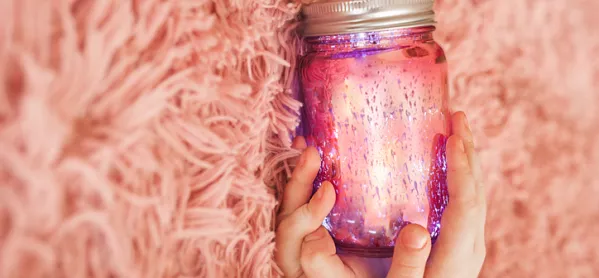- Home
- Teaching & Learning
- General
- How Mindful Mondays support student mental health
How Mindful Mondays support student mental health

Last March, we all faced a huge challenge. We moved to online teaching overnight, and, as teachers, we scrambled to ensure that our students’ learning could continue online - which, when teaching vocational subjects with high levels of practical content, required a lot of imagination and flexibility.
It was a massive task to undertake and it quickly became clear that our support needed to go way beyond teaching and learning: students’ mental health was suffering and we needed to help them in any way we could.
Mental health is one of the top priorities at my college, Ayrshire College, as it is in colleges across the country. The number of students who struggle with their mental health is staggering and while we are not all professionals in this area, trying is what matters. Students can smell a fake a mile away - they know when you are genuine and want to help them.
Mental health: 17,000 college students receive regular counselling
Long read: How FE is supporting mental health during lockdown
Tes FE people of the year: Alana Pignatiello
I have found that it is the little things that help. Last year myself and another lecturer, Michelle, had gratitude jars in our classroom. We left cards next to the jar and invited students to fill them in when they felt grateful for something. Before long, the jar was full and students who I did not think would take part did. When it was full, we put all the entries on the wall and read through them all. It was wonderful to see what people were grateful for and it made others realise that they had a lot to be grateful for in their life.
As soon as we went into lockdown this year, I tried to think of another way to keep the students positive and focused on the good. It’s been almost a year of the pandemic, and in these dreary winter months, I knew that supporting mental health and wellbeing would be more important than ever.
Having a teenager at home helps me tap into the mindset of students. My daughter, who is 15, pointed out that this lockdown is different from the first one. It is not new, the novelty has worn off and we don’t have the sun. There isn’t the same motivation to learn something new, we have watched everything on Netflix and Disney Plus and, for most of us, it’s just boring.
Coronavirus: Supporting college students’ mental health and wellbeing
I wanted to motivate her, so we started to talk about gratitude and I started to think about my gratitude jar. I wanted to do something similar and came up with Mindful Mondays. I have written 50 mindful cards and will pick out a card at random every Monday and post it to the students’ Microsoft Teams pages and ask them to participate if they want.
I purposefully started with the gratitude card which explains what being grateful does to your mental health and asks the students to think of five things they have been grateful for in the past week, and to think about how those things make them feel. The response has been fantastic. So many students have shared what makes them grateful and they have been quite deep: some have made me laugh, some have brought a tear to my eye, but whatever they responded with, it confirmed that they need something like this.
Students need something or someone to remind them that everything is not all bad, to be grateful and to be kind to themselves. It is our job as lecturers to teach our students - we know this - but it is also our job to show that we care and will support them through this.
In doing these little tasks with my students, there is a selfishness. I get something out of it, too. It makes me feel happy and positive and grateful to know that I am making a difference to how they feel. This year, supporting our students’ mental health must be our top priority, especially during this lockdown, and I am sure we all have ideas of how to do that. I would be grateful to know how others are supporting their students’ mental health and wellbeing during this time and hope that these ideas help others.
Alana Pignatiello is a make-up artistry lecturer at Ayrshire College
You need a Tes subscription to read this article
Subscribe now to read this article and get other subscriber-only content:
- Unlimited access to all Tes magazine content
- Exclusive subscriber-only stories
- Award-winning email newsletters
Already a subscriber? Log in
You need a subscription to read this article
Subscribe now to read this article and get other subscriber-only content, including:
- Unlimited access to all Tes magazine content
- Exclusive subscriber-only stories
- Award-winning email newsletters
topics in this article



